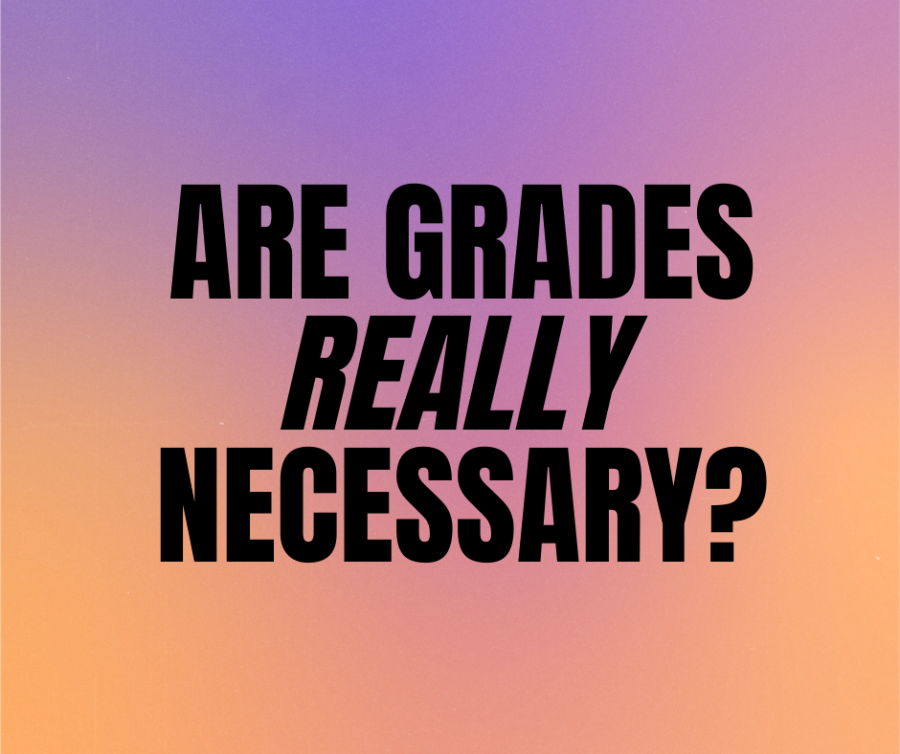What Good Are Grades?
During Virtual Learning & A Global Pandemic… Really… What’s The Point?
October 15, 2020
As students and teachers experience virtual school, oftentimes with cameras and microphones off, a few questions often arise. Can the in-person connection between teachers and students be reached through an online setting? Are students more likely to cheat on tests? Do some students hold advantages in physical and emotional experience compared to others? And what do grades mean in such a setting like this?
In the United States, the overarching purpose of grades is to accurately measure a student’s mastery of course content and progress. But how can students be fairly and equally measured when circumstances and experiences vary from person to person?
Many students have been forced to take a part time job in order to support their family, suffered a loss of a loved one to Covid-19, or affected by the pandemic in some other way. But specifically, students in Black, Hispanic, and Native American communities are far more likely to lack, “regular meals, a quiet place to work, computer access, guidance on how to get online and even online access itself,” compared to their white peers. These communities are also much more likely to fall ill or have a loved one fall ill to Covid-19.
This creates significant disadvantages for students in their mental, physical, and emotional environment. How can you fairly grade a student who has just lost someone to Covid-19, works a part-time job in order to help their family get by, and lacks regular meals, on the same scale as a student who is safe and healthy at home?
You can’t.
Not only is the grading of students inequitable, but it also contributes to a misguided motivation. Milla Grabowski, a sophomore at Green Level says, “we (students) are often stressing about getting an A (grade) rather than focusing on actually learning the material.” This often leads to cheating, low self-esteem, and issues with mental health.
Brian Myers, Green Level’s Band Director, does believe in grades but thinks it would be beneficial to have a shifted perspective of them, “I think there’s too much pressure on making perfect grades, and we lose sight of the true purpose behind them; they should be a measure of how a student masters content of the course.” He adds that, realistically, students will not have an A grade in every class, even though many students like Grabowski feel pressured to, and that should be ok, but “unfortunately, it doesn’t feel ‘ok’ in our current education system.”
And Grabowski agrees when she says, “Oh, grades stress me out a lot! I could be understanding the material, and liking the subject but that really doesn’t matter.” And because of this massive pressure on students to earn good grades, there is an even greater increase of stress placed on students during the pandemic, which has already drastically negatively impacted their mental health.
Some teachers like Ashley Nation, chair of the Green Level English Department, question the necessity of grades even outside of the pandemic, “I admit to having a ‘difficult relationship’ with grades. For me, in an ideal world, we wouldn’t use them.” She says that she would rather have a system in which grades were replaced with feedback, mentioning similar points to both Myers and Grabowski, “I think students should be able to experience mistakes–even failure–as part of the learning process and focus on learning rather than on a grade.”
The American grading system has many issues on its own, and teachers like Nation and Myers have done their best to create their own fair system, and students like Grabowski have done their best to abide by it. But with an international pandemic affecting our economy, relationships, professional, and personal lives, we must ask ourselves more than ever: what good are grades?








